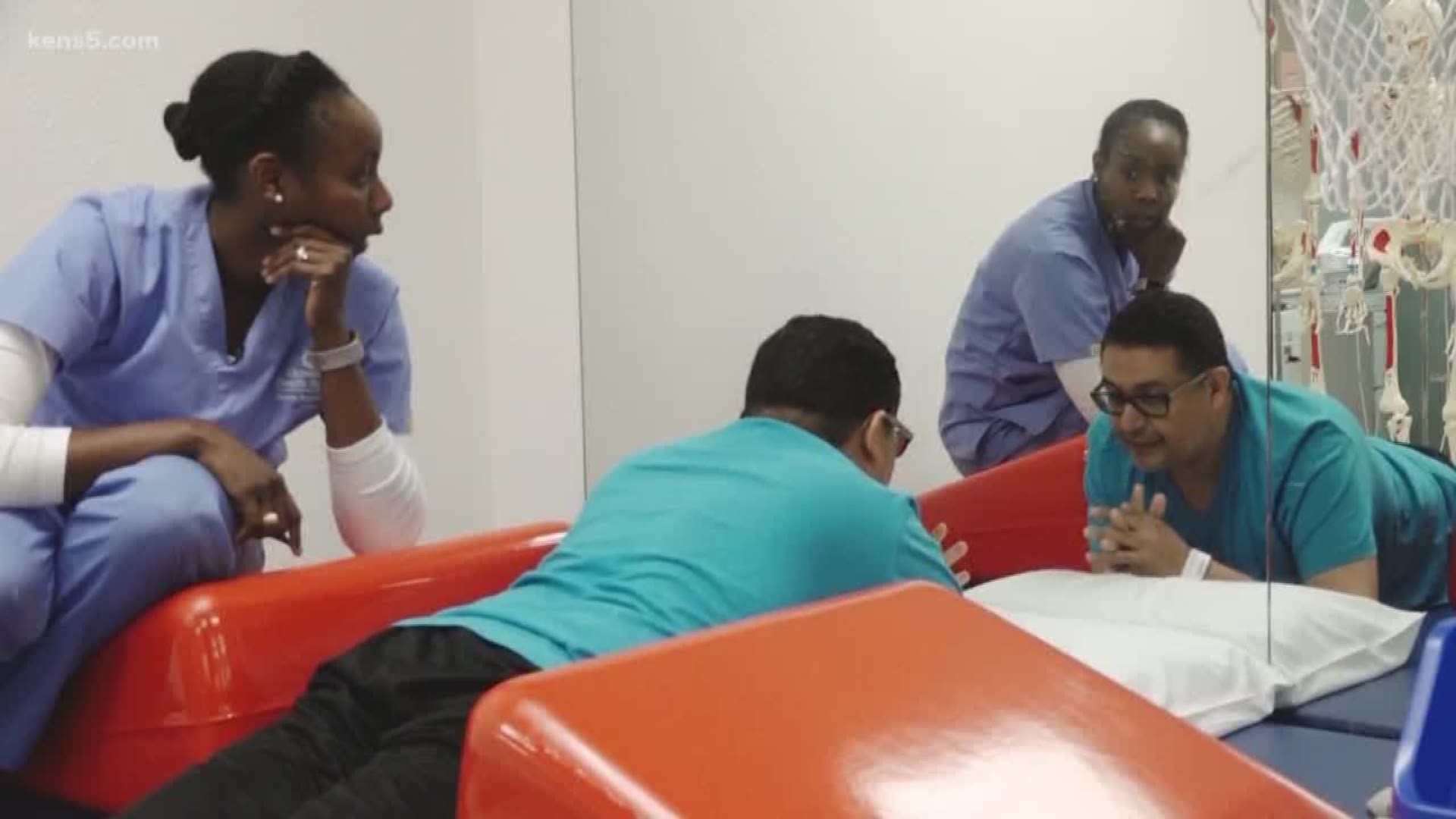When you have any kind of injury affecting your body, whether it be a brain injury or a physical injury, doctors say getting the therapy you need to get back to what you consider normal is imperative.
"We want to get them home, but it's not just getting them home. We want them to get home safely and where they are able to function at a level that they weren't doing before," said Dr. Jessica Harrison, a physical therapist with University Hospital within the University Health System.
Harrison said it requires a lot of work, even for what would be considered simple tasks.
"For all the patients in general, we are trying to get them back to their functional mobility. [We monitor] how they are doing moving around, walking, moving in bed and some of them have to have a wheelchair," Dr. Harrison said.
"I can see the progress, and I can see it getting better as we go along," said Richard Mendez, who has been working with Harrison following a stroke he suffered during Fiesta.
Mendez said a doctor and patient acting as a team is the best way to tackle his therapy.
"[My doctor] corrects me when I'm doing something wrong, or something is going the wrong way when I don't have control over it. She's there to always have my back," he said.
"What we are doing is working on strength in his legs, so it's kind of a progression. We kind of started him on his hands and knees. Once he got really good with that, we got him on his knees where he is sitting up. Then once he got great with that, we had him put one leg in front of the other," Harrison said.
With many patients, working to get back on their feet can cause frustration.
"Things that I see that are significant, they don't necessarily see that they are significant. I make an effort to point out, 'you couldn't do this yesterday, but you can do this today. We might not be back to where you were, but we are making a little progress.' It is not going to happen overnight," Harrison said.
Once they are well enough to go home, the work doesn't stop.
"Just like with anything, any workout program, if you stop doing it you were going to lose all the progress you made," she said.
It is up to the patient to work hard and wear that gown.
For more men's health information call 210-358-3045. You can also find the rest of our Real Men Wear Gowns stories on WearTheGown.com.

